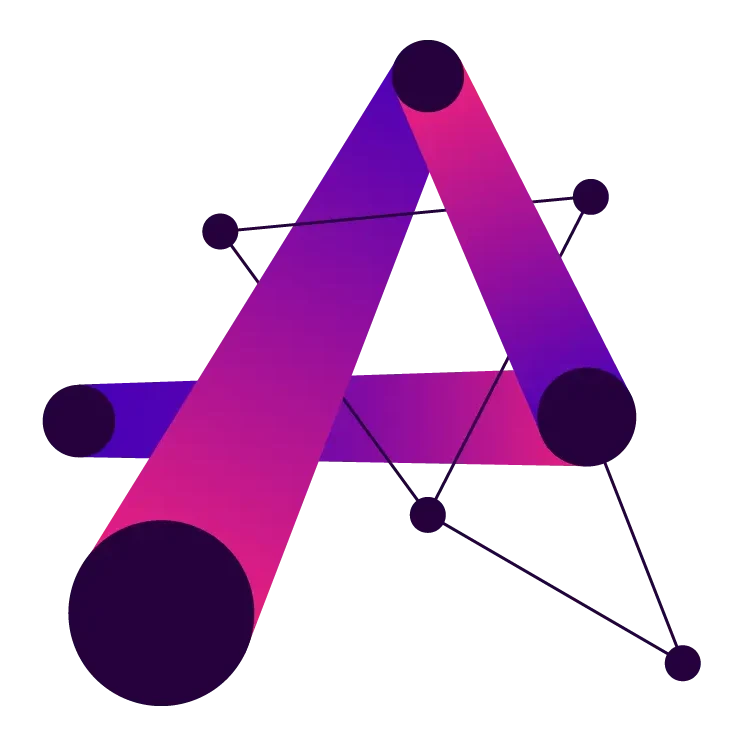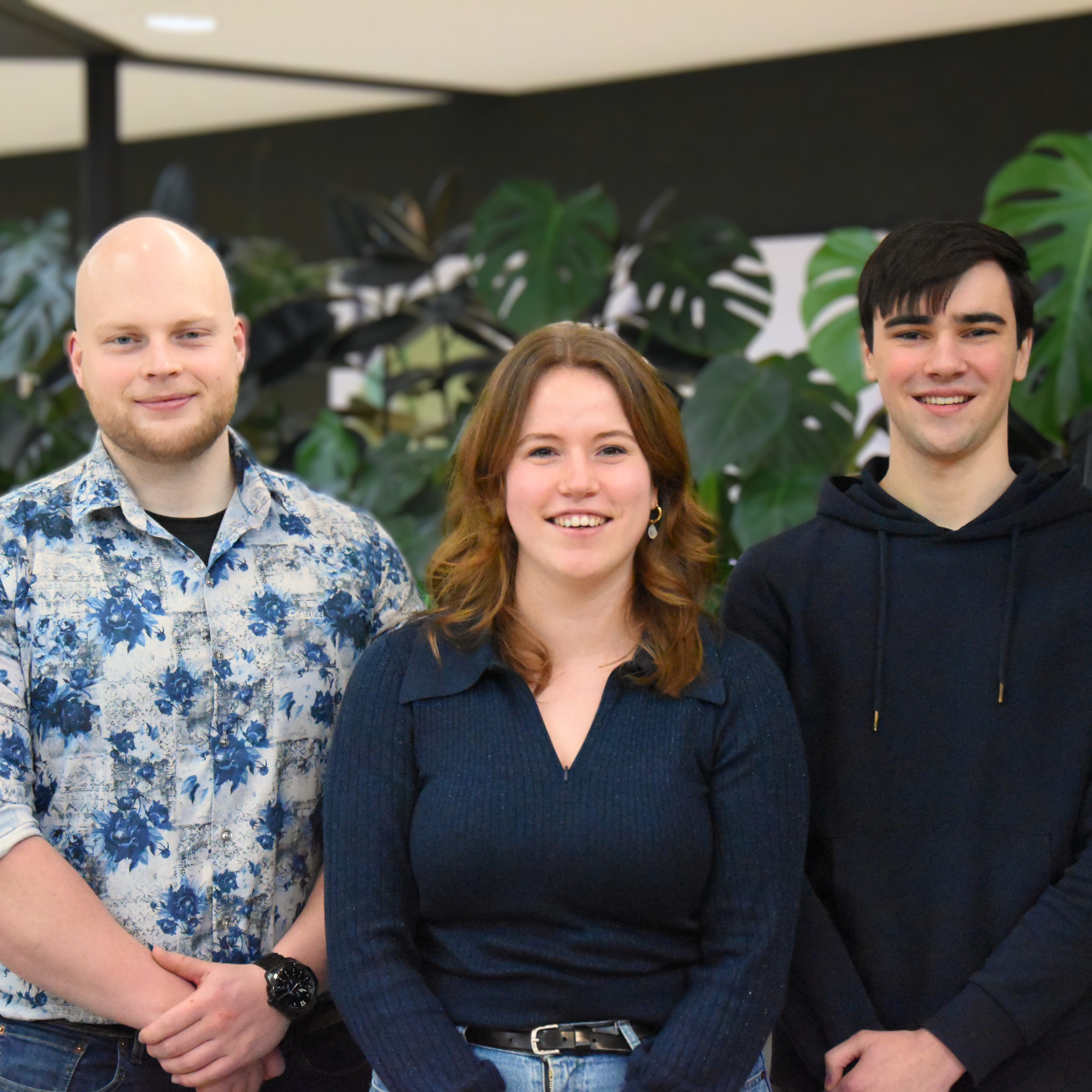Written by Lynn van Mourik
Paul is 26 years old and one of our developers. He did his BSc in Medical Sciences and Technology, and during his studies, most of his electives were in programming & data science. Next to studying, he was part of TU/e Sensing Team, a student team competing in the annual SensUs biosensor competition, a team which Maurits (our CEO) was also a part of at that time. Thanks to their good collaboration there, Paul was invited to work on Aristotle as a programmer. Once Aristotle became a company and got our first investor, he decided not to pursue a master’s degree but instead work in the company.
Véronne Reinders is our CTO. She is 26 years old and has both a BSc and MSc in Artificial Intelligence. In her master’s she focused more on software development and did an elective at TU/e InnovationSpace together with her co-founders and stakeholder PSV. For her, this was the perfect combination of software and sports. What she likes about software development is creating something out of nothing. Véronne is in her element at Aristotle Technology. She sees this as a fantastic opportunity to lead the development team and hopes to be a role model in the tech world since there is still inequality. As a leader of a group/taking control has always come naturally to her, this, in combination with the fact that she is a good planner, strong-headed, and never backs down from a challenge, makes her a good manager.
Wessel Nuijten, 19, is a second-year student of Biomedical Engineering at TU/e. Besides his studies, he finds joy in playing soccer. What truly drives Wessel is the opportunity to utilize technology for the improvement of people’s lives. With a keen eye for detail, he understands the importance of precision in his work.
What is your role within Aristotle Technologies?
Véronne: My role is CTO, what I like most about this role is that I can take a managing position. This has always been something that comes naturally, taking the lead in group situations. In addition to that I like voicing my thoughts and opinions and being a part of the board gives me this opportunity. But we cannot forget the ‘basic’ developer tasks like programming. If I can keep doing that, I will be happy. I love to solve puzzles and programming to me is always like solving a big puzzle. It can drive you insane but once you figure it out and it works the euphoria takes over.
Paul: I am one of the developers, mostly working on front-end and AI. A big part of my role is meeting with our partners and using their feedback to improve our software. For me, it is the perfect blend between solving puzzles, but also meeting with clients and partners.
Wessel: I am the QA tester, which means that I test the new features that are made by Paul and Véronne for bugs. They then solve the bugs I encountered, which gives me new features and upgrades to test. So, basically, I am the one who searches for flaws for Paul and Véronne to fix.
Can you explain what the development department does?
Véronne: The development department consists of a few teams. We have the AI team and together with Wessel and Paul, we form the main development/frontend team. As the development team, we develop ACT Kinisi and ACT Sofia. We all focus on our things, so Wessel focuses on quality assurance, Paul focuses on the tasks of ACT Kinisi and the whole of ACT Sofia and I focus on all things that are connected to the API in one way or another.
How does collaboration happen within the development team, and how do you ensure code quality?
Véronne: Development would not be possible without collaboration. Paul and I work together the closest. Even though we sometimes work on different tools it is best to determine the purpose/tasks together. When we are both working on ACT Kinisi this sometimes requires a remarkably close collaboration where we need to combine both our work. Once that is done it is up to Wessel to determine the quality of the software and report any bugs. We then fix these bugs and Wessel will check this again. So, we work in a continuous loop.
Paul: Next to close collaboration we use version control systems like Git, agile methodologies, stand-ups, planning meetings, etc. for collaboration and keeping tabs on what we are doing to ensure code quality. Moreover, we do intensive testing, both manually and automated.
How do you approach understanding and meeting the needs of Aristotle’s clients?
Paul: We meet regularly with our partners, where we listen closely to their experiences with the software. We involve them in the planning of our roadmap and the designing of our new features. During development, we present them with mockups and demos to gather early feedback.
What was your motivation to start at Aristotle Technologies?
Wessel: I joined Aristotle Technology around a year ago. Via Wim Nuijten, I saw an application for a position at Aristotle Technologies. It immediately motivated me to apply, as it is exactly what I want to do with technology.
Paul: I have always enjoyed programming and have always liked being an “entrepreneur” as much as I hate the word. I want to make a difference with the product I am making, and that is something I feel like we are doing.
Can you share a memorable experience or project you worked on at Aristotle?
Wessel: I remember at the start of my time at Aristotle, I needed to download and prepare everything so I could get started with work. At first, nothing worked, and it was difficult to get started, but with the help of Paul and Véronne, it eventually became good.
What are your goals within Aristotle?
Véronne: My goal within Aristotle is to reach as many people as possible who can benefit from cognitive training, but also keep innovating our software and always delivering a quality product. Personally, my goal as a woman in tech is to be an example and hopefully show a few people that if I can do it, they can also do it.
Paul: I could not agree more with Véronne!
Why is it important what Aristotle does?
Véronne: During the past months it has become even clearer to me what the impact can be within physiotherapists but also people with an acquired brain injury. Being in the sports sector is super cool and nice to flaunt at for example a party, but the moment that we receive a message from someone with an acquired brain injury mentioning that our software helped them with their daily functioning is when I will be satisfied. For example, when filming Driven by Challenges, we went to our partner Van Hoof and one of the patients mentioned that he can now go for a walk without using his walker!
Paul: While it is gaining some popularity, cognitive training is not very widely used yet, while it can improve the quality of life of many people in a lot of different fields.
How does your department contribute to the goals of Aristotle Technologies?
Paul: As the development department we deliver the software, thus the product, that is used by our customers. Together with everyone at Aristotle, we contribute to creating the idea of the product, but the development team executes this idea by programming it into a functional app.
How do you see Aristotle Technologies contributing to industry or community?
Véronne: We are the first company that offers dual-task training in the way that we do. Thus, I believe in certain sectors like brain injuries, children with learning disabilities, and physiotherapists we are the first in the industry. In the sports sector, there are tools used for reaction time like fit light and for training cognition, but no other company offers both these things in a dual-task form and returns valuable data insight.














